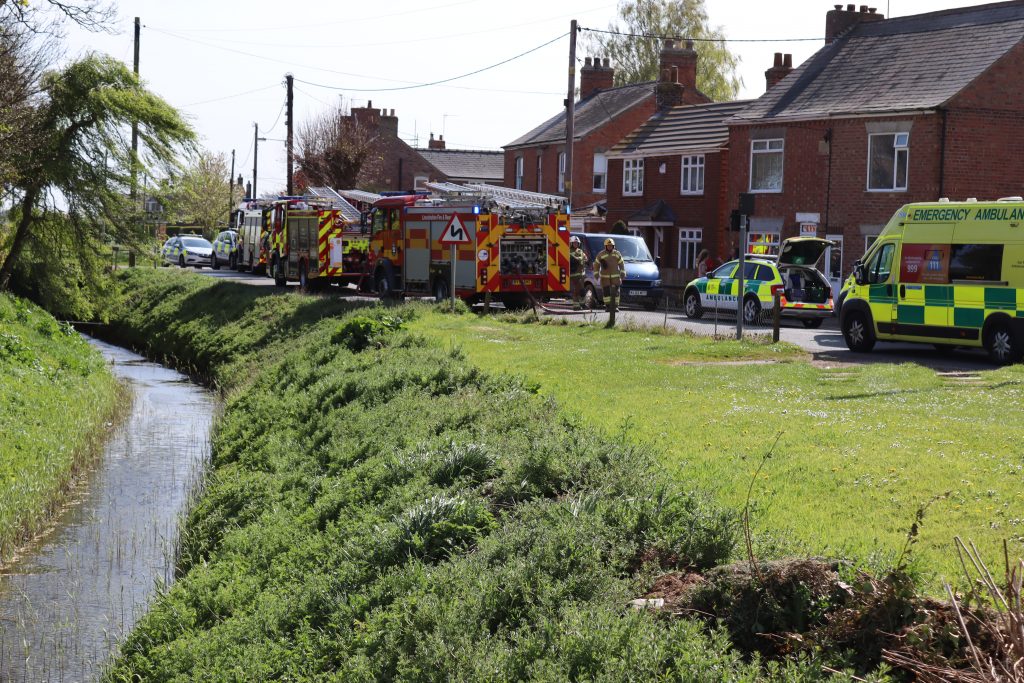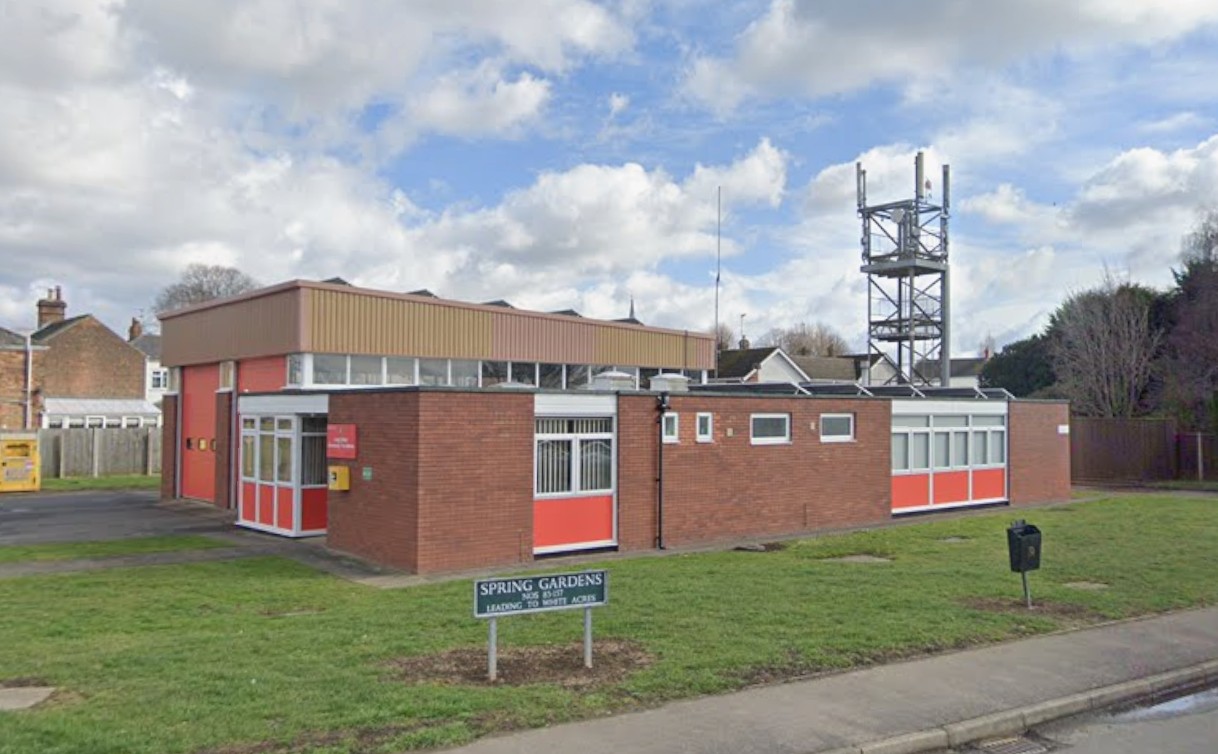A Moulton woman who became convinced that COVID-19 was a hoax that could lead to war died after setting fire to herself an inquest has heard.
Zsuzsanna Marlyin (49) died at the specialist burns unit in Broomsfield Hospital in Essex on Sunday, April 19, two days after the incident at the Hallgate home she shared with husband of 24 years, Richard Tell.
The inquest into her death held at Lincolnshire Coroner’s Court heard that she’d suffered burns to 83 per cent of her body.
In a statement to the inquest held by coroner Tim Brennand, Mr Tell said that Ms Marlyin had made no previous attempts on her life.
She’d had treatment for depression ten years ago but lost her mother-in-law in February and the couple’s dog just before Christmas.
Paraphrasing Mr Tell’s statement, Mr Brennand told the hearing: “Suza would frequently look at where the dog’s ashes were buried or placed and cry and he would try and comfort his wife.

“During the start of the COVID-19 lockdown she started to read the news more often and becoming quite excessive in relation to this item.
“It was mainstream sites, BBC and Guardian and Hungarian websites.
“She was in tears saying she didn’t want to die.
“It’s quite clear that in the second week of lockdown she was convinced that COVID-19 was a hoax to the extent she would walk near people when on daily exercise.
“She would say ‘I’m stupid for believing it’ and this slowly changed in the week up to Easter when she said that COVID-19 was a cover up for an invasion by the Chinese or possibly the Russians.”
“I tried to calm her down but she was concerned. I hoped it would pass.”
The inquest heard that on Easter Sunday (April 12) Ms Marlyin had bought several packs of prescription drugs and boarded up one of the windows.
Mr Tell, who was described as attentive and caring by the coroner, alerted their GP and a crisis team was sent though the health care workers found no evidence of psychosis and that she knew what she was doing was irrational.
It was also stated that she was concerned that due to the lockdown she would be unable to visit family in Hungary where she was born.
Mr Tell’s statement continued: “Suza described the help ‘as a waste of time’ but he commented that if she might have been more open to them it might have been more helpful.

“For the rest of the week Suza seemed more agitated and unsettled.
“She’d also taken to whispering, sometimes saying ‘they can hear’.
“When I asked who, she said ‘the Chinese’.
“She became increasingly concerned with the Chinese state education system.”
Mr Tell’s statement continued that Ms Marlyin had felt unwell on the morning of Friday, April 17 and that at around 2.45pm he’d gone into the garden to find her holding the extension cable of a garden appliance and a pair of secateurs and kept saying she didn’t know why she was doing it.
The inquest heard while he went to pull the plug out of the socket, she went to the barn.
Mr Tell’s statement continued: “The next thing I saw was her running past my study window. She was on fire. I went to get something to put the flames out. By the time I came out most of the flames were out. Suza tried to run away from me but I caught her up the road.”
A passing motorist called the emergency services and Mrs Marlyin was described as being ‘lucid’ while answering question of paramedics before she was transferred to Peterborough City Hospital and then on to Chelmsford Intensive Care Clinic where she died as a result of her injuries two days later.
Mr Brennand concluded a narrative verdict for the death, stating that he was satisfied that Mrs Marlyin did set fire to herself, but was not satisfied that she intended to her end her life.
He stated that health professionals involved followed good practice saying: “Neither could have foreseen the terrible tragedy that occurred.”
Mr Brennand said: “This is indeed a tragic and somewhat surreal and bizarre case.
“Surreal and bizarre because there’s a known and modest history of mental health that gives no sign that may well have predicted what was to happen on this tragic day in April.
“This is a functional relationship and a tight family unit, a husband and wife, partners in life and the evidence from Mr Tell is that he recognised the deterioration and did the best that he could.
“I’m entirely satisfied this was a deliberate act. The fire report negates any suggestion it’s linked to any vapours or fumes on her clothing and some spark or trigger caused the fire.
“However on the issue of intent, I’m not satisfied that she was intending her life to be brought to an end. Throwing petrol over yourself and setting yourself ablaze is quite an extraordinary and extreme thing to happen.
“On the one hand one can infer this must be a spontaneous decision on the part of the deceased, if it was deliberate and intentional suicide there may well have been a note, there may have been the usual or customary arrangements of her affairs.
“They may have been careful and considerable preparation. She may have gone for a more conventional way of bringing her life to an end if this was a suicide scenario.
“I do not believe that she was of sound mind. I do not consider that her actions can be attributed to being intentional.
“There’s fleeting evidence of her hearing voices. There’s the disordered, dellusional and wholly illogical way she was approaching the pandemic crisis, the whole lockdown experience.
“The fact she was lucid after the events and answering questions, there’s no such evidence she maintained her intent to the paramedics.
“I can only offer my profound sympathies to the family and friends of the deceased.”







